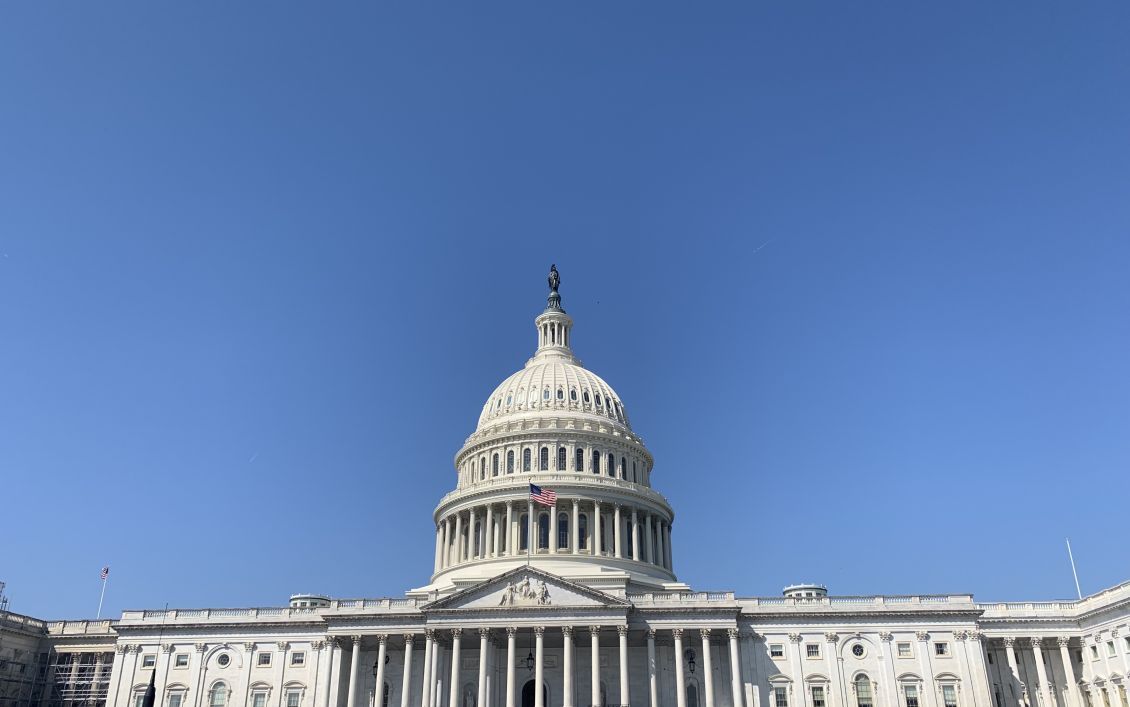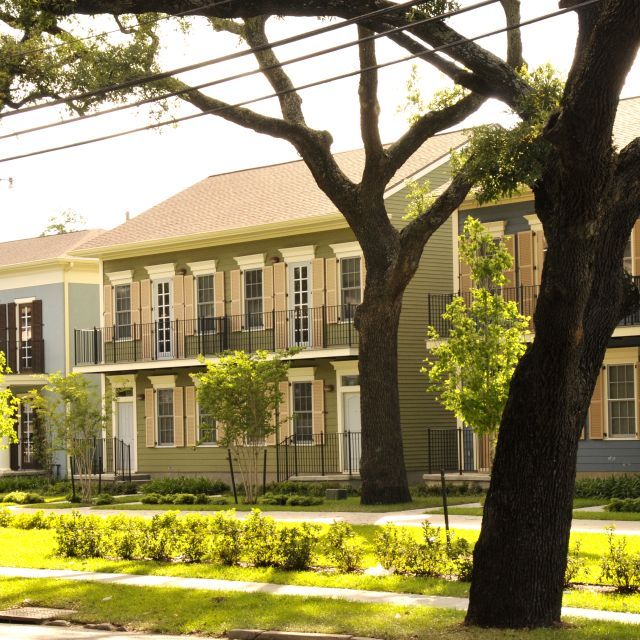On June 27, the House subcommittee that funds the federal Department of Housing and Urban Development (HUD) approved its fiscal year 2025 (FY25) spending bill and sent the proposal to the full committee for consideration. Due to the bipartisan debt limit legislation, the Fiscal Responsibility Act of 2023 (FRA), Congressional appropriators are operating under strict budget caps, which will affect the amount they can provide for non-defense discretionary programs.
Earlier this year, the House Appropriations Committee approved its subcommittee allocations, also known as 302(b)s, which would result in a 6% cut for nondefense discretionary programs compared to FY24 enacted levels. These amounts were below the spending levels in the FRA and levels provided in the FY25 President’s Budget Request, further constraining spending for nondefense programs such as key housing and community development programs.
The House Appropriations Subcommittee for Transportation, Housing and Urban Development, and Related Agencies (THUD) proposed $64.8 billion for HUD in net discretionary funding. According to the statement from the THUD Appropriations majority, this proposal would reduce HUD grant programs by $937 million, 44% below FY24 enacted. This includes a drastic cut to the HOME Investment Partnership Program (HOME), $750 million (60%) below FY24. HOME is expressly designed to help state and local governments create affordable housing for low-income households. Enterprise is also concerned about the language to prevent HUD from implementing the “Affirmatively Furthering Fair Housing” rule, which is focused on rooting out historic housing inequities and fostering inclusive communities.
The House bill also proposes harmful provisions, including:
- Prohibiting HUD from using funds to implement, administer, or enforce the proposed “Affirmatively Furthering Fair Housing” (AFFH) rule. The Fair Housing Act of 1968 includes a mandate to “affirmatively further” fair housing by actively working to reduce disparities in housing outcomes caused by past policies and practices. This provision would effectively block the most comprehensive interpretation and implementation of the AFFH mandate from going into effect.
- Prohibiting HUD from using funds to improve the energy efficiency of new housing financed by the Department, by blocking any future updates to minimum energy efficiency standards. The adoption of modern building codes, including the 2021 International Energy Conservation Code and ASHRAE Standard 90.1-2019 is a crucial step in supporting an equitable and sustainable energy transition, as well as lowering costs for households across the nation.
- Striking a provision in the bipartisan-passed CARES act that requires a 30-day eviction notice for tenants in federally-assisted housing—making it easier for families to be evicted.
Some of Enterprise's policy priorities received increases, including the Native American Housing Block Grant, which received a 10% bump, following a historic 41% increase in FY24. Many programs also received level funding, such as the Community Development Block Grant and the Section 4 Capacity Building for Affordable Housing and Community Development programs. According to the statement, funding provided for rental assistance programs such as Housing Choice Vouchers, is expected to cover all existing contract renewals, resulting in no cuts for voucher holders.
A breakdown of the affordable housing and community development spending levels can be found in our Fiscal Year 2025 Budget Request and Appropriations Chart. Here’s where funding for some of HUD’s key programs stand compared to last year’s budget:
- $32.3 billion for Tenant-Based Rental Assistance, a $114 million (0.4%) decrease from FY24. According to the aforementioned statement, it is expected this amount will cover the cost of all contract renewals, resulting in no cuts for current voucher holders.
- $16.2 billion for Project-Based Rental Assistance, which is $185 million (1%) above FY24. According to the aforementioned statement, it is expected this amount will cover the cost of all contract renewals, resulting in no cuts for current voucher holders.
- $8.2 billion for Public Housing, a $597 million (7%) decrease from FY24. This total includes $5.1 billion for the operating fund, a $379 million (7%) decrease, and $3.1 billion for the capital fund, a $153 million (5%) decrease.
- $5.5 billion for the Community Development Fund (CDF). Of this, $3.3 billion is allocated for the Community Development Block Grant (CDBG) program, equal to FY24. An additional $2.2 billion in CDF is for earmarks and congressionally directed spending items. The House proposal does not include funding for the Yes in My Backyard/PRO Housing grant program.
- $4.1 billion for Homeless Assistance Grants, $9 million (0.2%) above FY24.
- $1.5 billion for Native American Programs, a $111.1 million increase (8%) above FY24 enacted. This includes $1.2 billion for the Native American Housing Block Grant (formula), a $111.1 million (10%) increase above FY24 enacted. However, the bill eliminates funding for the Native Hawaiian Housing Block Grant, which was funded at $22.3 million in FY24.
- $931 million for the Section 202 Housing for the Elderly, a $18.4 million (2%) increase from FY24.
- $500 million for HOME, a $750 million (60%) decrease from FY24.
- $256.7 million for Section 811 Housing for People with Disabilities, a $48.7 million (23%) increase from FY24.
- $125 million for Family Self-Sufficiency (FSS), $15.5 million (11%) below FY24.
- $42 million for the Section 4 Capacity Building program, level with FY24.
- $10 million for the Preservation and Reinvestment Initiative for Community Enhancement (PRICE) Program. This amount is equal to FY24 enacted.
Prior to the THUD bill release, the House Appropriations Committee also released spending proposals for Treasury and the Rural Housing Service under USDA. Below is an overview of the spending proposals.
Treasury
The Financial Services and General Government (FSGG) subcommittee, which provides funding for the Treasury, released its proposal on June 13 and provided $23.6 billion for the agencies under its jurisdiction. This includes:
- $276 million for the CDFI Fund, $47 million (15%) below FY24 enacted levels.
USDA
The Agriculture, Rural Development, Food and Drug Administration (Agriculture-FDA) subcommittee, which funds rural housing programs, released its proposal on June 11 and provided $25.3 billion for agencies under its jurisdiction.
- $1.7 billion for Section 521 Rental Assistance, $76 million (5%) above FY24. The amount provided in the proposal is estimated to fully fund all rental assistance contracts. Similar to FY24, the bill includes language allowing another 1,000 units of USDA multifamily housing to receive rental assistance even after the property’s mortgage has been paid off, a process known as decoupling.
- $950 million for the Section 502 Single Family Housing Guaranteed Loan Program, $70 million (8%) above FY24. The bill also includes $5 million for the Native Relending Pilot Program, equal to FY24 enacted.
- $400 million for the USDA Section 538 guaranteed loans to preserve and rehabilitate USDA rental housing, level with FY24.
- $48 million for the Section 515 Rural Rental Housing program, $12 million (20%) below FY24.
- $28 million for the Multi-family Housing Preservation and Revitalization Program, $6 million (18%) below FY24.
Enterprise strongly opposes the deep cuts for many programs and harmful provisions and will continue to advocate for Congress to provide robust funding levels for affordable housing and community development.
To stay up to date on the appropriations process and other affordable housing and community development policy, subscribe to our daily Today in Housing newsletter and bi-weekly Capitol Express newsletter.


